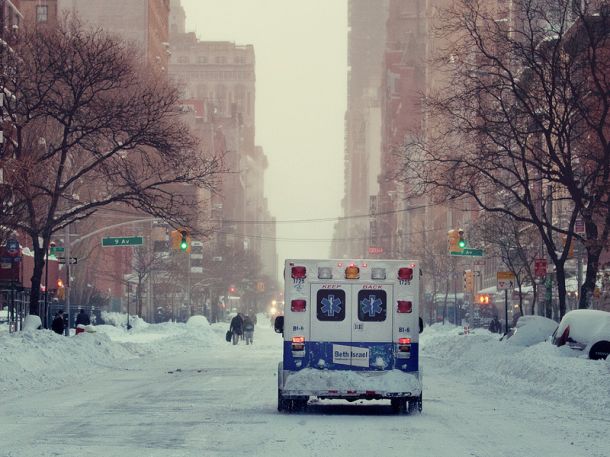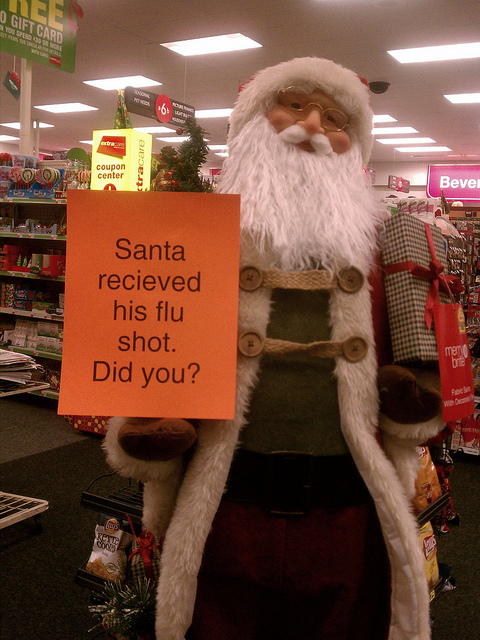
Think you might have caught an infectious disease? While medical sources are pretty definite about the difficulty of catching diseases like Ebola in NYC, it’s still helpful to know what procedures the city has in place to deal with contagious diseases. As NYC is an international hub that sees travelers come in from all corners of the globe, we looked around to provide some answers for internationals who might wonder about NYC’s health emergency procedures.If there is a medical epidemic of any sort, where would a person look to find accurate information on it?The Center for Disease Control and Prevention is the US government-run organization that handles the gathering and communication of information on diseases throughout the country. Visitors to their website can find information on outbreaks throughout the country as well as the answers to frequently asked questions about viruses and diseases, prevention tips, emergency preparedness, and more. The New York State Department of Health (NYSDOH) is also a good source of info on health news relating specifically to the state.If I think I have a dangerous disease or virus such as Ebola, what do I do?Remember, in an emergency call 911. If it is not an emergency, remain calm and do a bit of research into the disease—find out if you were at risk to catch the virus you think you might have, and what signs and symptoms you would be exhibiting if you have it. If you think you have the symptoms, and you have a doctor here in NYC, call him or her. If you don’t have a doctor here in NYC, you should go to the hospital to get checked out.Are there any medical conditions people in NYC are *required* to seek medical assistance for? (highly contagious illnesses, etc.)New York City’s Health Code Article 11 requires that certain diseases and conditions be reported to DOHMH immediately and others within 24 hours. The list includes rare diseases such as cholera, smallpox, and plague along with the more common meningitis, hepatitis, and tetanus—among others. For the full list see the NYC government website’s list of reportable conditions.  Does the NYC government offer any free health checkups, exams or vaccinations?While there are a number of free clinics throughout NYC, the government does not officially offer free vaccinations or exams. However there are several health department immunization clinics which offer immunizations on a sliding scale fee based on family size and annual income; at these clinics the services will be provided regardless of a person’s ability to pay.If you see someone else in a medical emergency, who should you call?For medical emergencies call 911—this number is for acute medical emergencies requiring emergency transport to a hospital and on-site life-sustaining assistance. You will need to be able to inform the 911 dispatcher of the location of the emergency, including the street address, the phone number you are calling from, and details about the emergency, such as a description of injuries or symptoms.If you see someone who might need medical help but you’re not sure (ex. a homeless person sleeping outside in extreme temperatures) who should you call?If it is potentially life-threatening or you are in doubt, don’t guess, call 911. If it’s not an emergency, then call 311—NYC government information and non-emergency assistance. The line is available 24/7 in 170 languages. In a situation such as someone sleeping outside when temperatures are below freezing, 311 can dispatch someone to check on the person and offer assistance to a shelter.When should a person call an ambulance?
Does the NYC government offer any free health checkups, exams or vaccinations?While there are a number of free clinics throughout NYC, the government does not officially offer free vaccinations or exams. However there are several health department immunization clinics which offer immunizations on a sliding scale fee based on family size and annual income; at these clinics the services will be provided regardless of a person’s ability to pay.If you see someone else in a medical emergency, who should you call?For medical emergencies call 911—this number is for acute medical emergencies requiring emergency transport to a hospital and on-site life-sustaining assistance. You will need to be able to inform the 911 dispatcher of the location of the emergency, including the street address, the phone number you are calling from, and details about the emergency, such as a description of injuries or symptoms.If you see someone who might need medical help but you’re not sure (ex. a homeless person sleeping outside in extreme temperatures) who should you call?If it is potentially life-threatening or you are in doubt, don’t guess, call 911. If it’s not an emergency, then call 311—NYC government information and non-emergency assistance. The line is available 24/7 in 170 languages. In a situation such as someone sleeping outside when temperatures are below freezing, 311 can dispatch someone to check on the person and offer assistance to a shelter.When should a person call an ambulance?
- If the patient’s condition is limb- or life-threatening
- If the patient’s condition may be worse or may become life-threatening on the way to the hospital.
- If moving the patient will cause further injury
- If the patient need the skills or equipment of paramedics or emergency medical technicians
- If the distance or traffic conditions may cause a delay in getting the patient to the hospital

